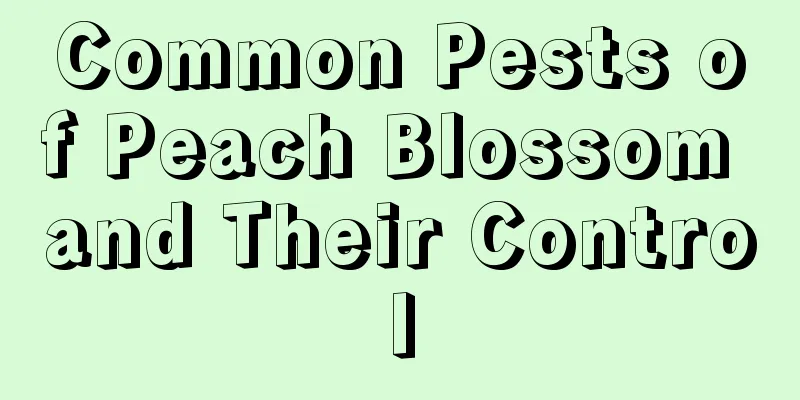Common Pests of Peach Blossom and Their Control

Common Pests of Peach BlossomPeach blossoms may be infested with insect pests. Common pests of peach blossoms include aphids, scale insects, red spiders, and red-necked longhorn beetles. Aphids usually appear in spring and will affect the growth of peach branches. On the other hand, a large number of aphids gathering on the branches of peach will also affect the ornamental value of peach. Red spider mites can harm the branches, leaves, and flowers of peach trees. In the early stages of the infestation, there will be some very small light yellow spots on the leaves. In severe cases, the leaves will dry up, curl, turn yellow, and fall off. The red-necked longhorn beetle will eat the bark of the peach tree, harming its growth. Peach pest controlPests harm the growth of peach trees, so how can we prevent and control the pests of peach trees? When we plant peach trees, we must pay attention to reasonable fertilization and reduce the application of nitrogen fertilizer so that the peach plants can grow well, which can prevent the occurrence of pests. If peach trees are infested with aphids, we can cultivate some natural enemies of aphids, such as ladybugs, flower bugs, etc., and use natural methods to prevent and control the harm of aphids. However, if the situation is more urgent, pesticides need to be used to kill the aphids. If red spider mites appear on the peach plant, we can pay attention to pruning the branches and leaves of the peach on a daily basis so that the whole plant can get light and the ventilation performance can be enhanced. Water it in time when it is dry. This can reduce the reproduction of red spider mites. In addition to these more natural methods, we can also use pesticides to make solutions according to relevant ratio requirements and spray them, which can effectively kill red spider mites. |
<<: Diseases and Pests of Blue Flower Dandelion and Their Control
>>: Common insect pests of Photinia
Recommend
What is the best season to plant sunflowers? What month is suitable for planting?
Sunflowers are mainly divided into two categories...
These flowers are easily killed by the sun in summer
Hydrangea Hydrangeas need to be shaded in the sum...
A great way to turn one succulent plant into two by cutting off its head
Beheading process Tools: Scissors, small flower p...
Can Milan flowers be grown in the north? (Milan cultivation methods and maintenance techniques for northern families)
Is it easy to grow Milan in the north? Milan like...
Tips for caring for Star Beauty in winter and summer
Winter care tips for Star Beauty Star Beauty requ...
Caterpillars grew in her flowerpot, but they came back to life by pinching off some branches, and the entire pot was full in one month!
What does white sandalwood look like? Some people...
What is cinnamon and what are its benefits?
1. What is Cinnamon is its scientific name, also ...
What are the lily of the valley propagation techniques? Is the survival rate high?
1. Seed propagation 1. Obtain seeds: Lily of the ...
When and how to plant strawberries
1. When to plant strawberries Strawberries do not...
How to grow golden marbles and how to ensure flowering and fruiting?
Golden Ball is a relatively high-end potted plant...
What fruits are high in calcium?
1. Rambutan It is a fruit very similar to lychee,...
Why are the leaves of the peace lily drying up?
Other people's peace jasmine trees keep growin...
The most powerful plant
1. Jade Kylin The Jade Kylin is a kind of cactus ...
How to keep potted roses from withering? Are they afraid of cold?
1. How to keep it from withering 1. Suitable soil...
Water mint cultivation methods and precautions
1. Soil Water mint prefers a moist soil environme...









